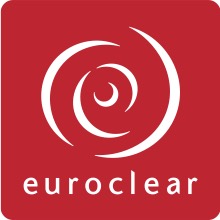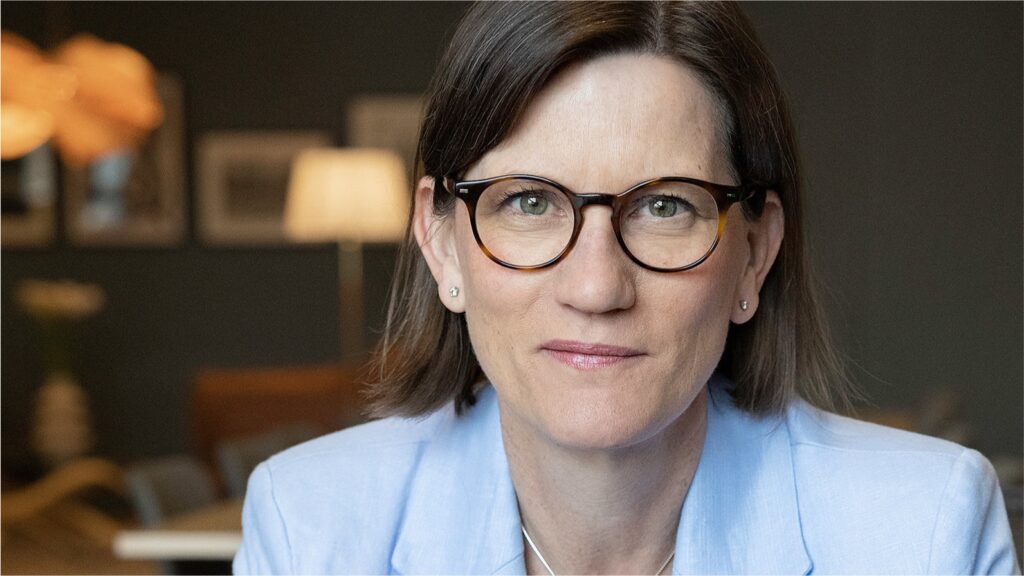With the current cash distribution service being decommissioned by Bankgirot, Sweden’s banks are required to redesign their internal flows of dividends and coupon payments to their clients, with a new solution to go live in September. Meet Sandra Holmqvist, Chief Business Development Officer of Euroclear Sweden, who suggests that the busy work with technical details is keeping many stakeholders from taking in the big picture, one that we should celebrate. In her eyes, the move is an important starting step on a journey towards standards and simplicity for the country’s financial market – and participants will be wise to explore their new strategic opportunities.

“For us all in the Swedish financial market, this shift means we are taking a big joint step towards standardisation with the world outside. Let us highlight it – and celebrate it,” says Sandra Holmqvist.
No doubt, there is a big operational change that is taking place now in the set-up for these equity market generated payments from issuers to investors. Below, find the textbox explaining what it is all about technically … but here, let’s get straight into the status update:
At Euroclear Sweden, the country’s central securities depository, the makeover project to handle one-way payment transactions in the equity market such as dividends and coupons has been underway for three years. For the account operators – commonly banks – the change requires adaptation, with a combined take on securities and cash in an area where the two flows have often been managed by different departments. From the original plan, the go-live date has been postponed a year.
Then, what improvements does this change bring? These payments have always worked well, right, so why would investors be happier to receive the same money through a different flow?
More than meets the eye
Sandra Holmqvist sympathises with those who sigh over the efforts that are going into streamlining all securities related payments into the same process. It’s just that there is an additional dimension in the scene – and she hopes all stakeholders will be able to see it and use it for their maximum benefit.
“Yes, this needs to be implemented technically, but the change is not fundamentally a technical one. We tend to look to the ground for where to put down our foot next, but this system shift is a great opportunity to raise the strategic outlook. What position do I want my institution to occupy in this future landscape? And how can we identify opportunities? The institutions that are able to assess this will be the ones who succeed,” she predicts.
In the years to come, Sweden’s securities settlement may face a need to transition towards the pan-European system Target2-Securities – a move that neighbouring Denmark has already made, and Finland is completing this year. By unifying Europe’s infrastructure, the continent hopes to make itself more attractive on the global stage for investments and financial business. Sandra Holmqvist suggests that we should view the current payments project in Euroclear Sweden not just as a technical implementation – but as an early chapter of that larger story.
Different businesses, different consequences
It is impossible to generalise how different stakeholders will be affected by the current and upcoming implementations. A firm that has had everything working for decades could find it awkward to uproot its structure. Another firm might enjoy operational simplification, as there will one less diverging process to maintain. A third one could emphasise the value of new capabilities going forward. Overall, however, this standardisation will likely streamline internal processes (for example by cutting out needs for reconciliation in multiple places), reduce operational risks, and make it easier to automate tasks and communication.
This said, Sandra Holmqvist cautions against viewing technical changes too much as isolated implementation projects.
“I think it’s an easy mistake to make, mentally, to think ‘let’s just do it and then we’re done’. Isn’t harmonisation instead about adapting together, continuously, over time?”
THE BACKGROUND
Adaptations required as settlement of payments moves to central bank money
When large Swedish issuers pay out securities generated money to investors – typically dividends from shares and coupon interest from bonds – they are not obliged to task Euroclear Sweden with managing the payments. However, most of them find it the natural way to do it, as the CSD has efficient processes and current lists of legitimate owners in place.
In the existing system, the payments go from the commercial bank of the issuer to those of the investors, with settlement of the payments being done on the level of commercial-bank money via Bankgirot – their common “automated clearing house”. With the new setup, the payments per each receiving account operator will instead settle in central-bank money on Riksbank accounts. Each bank will then distribute its sum among the cash-account holders who are in scope for the issuer’s hand-out. The issuer and investor will not really notice much difference, if any, but will see money going and coming in their accounts as before. In principle, though, central-bank money is safer than commercial-bank money, so in that sense the new system means an improvement. (The difference between these types of money came into some public discussion in the winter of 2023, as a few US banks went bankrupt.)
In the operations at Euroclear Sweden, this payment process moves from a dedicated Bankgirot-facing system which will be shut, into its main “VPC” platform where the securities trade settlements have been processed for decades. Here, the most common transaction types include delivery-versus-payment (“DvP”, where security and money are exchanged) and free-of-payment (“FoP”, involving the securities movement alone, for example when an investor moves shares between custodians). On the VPC platform, the payment function is implemented as a new transaction type, payment-free-of-delivery (“PFoD”), which conversely includes the money leg only. It is this integration of a one-way money-only process, into the securities systems domain, that is blurring a traditional demarcation line in the operations at many financial institutions.
The system transition will introduce the use of the new standard ISO 20022 for the payments messaging.













